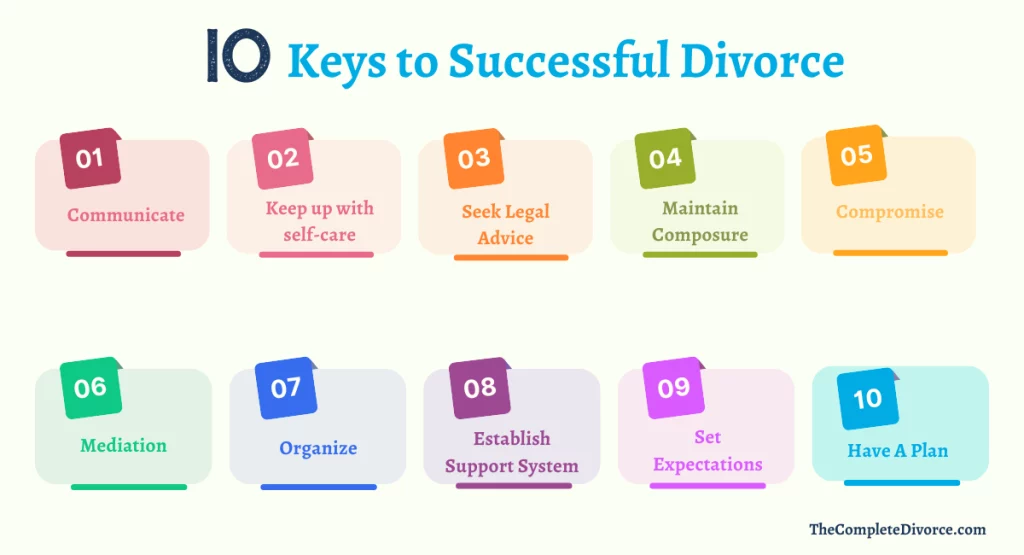
Share
Best Interest of the Child in California

Dina Haddad
Founder & Attorney Mediator
I’m Dina Haddad, a family law attorney-mediator in California. I’m so tired of couples not having a process that’s easy to complete their divorce. They are getting lost, wasting time and money, and beyond frustrated with their results.That’s why I created TheCompleteDivorce. I took my successful mediation practice and condensed it into an affordable and winning program.
In the complex world of family law, one concept reigns supreme: the best interest of the child. It’s the guiding principle in custody disputes, determining what is best for the child involved. This blog post will delve into what the best interest of the child means, provide you with a practical checklist, and insights on how to prove it, and discuss its interplay with parental rights. Additionally, we’ll take a closer look at key California Family Code sections relevant to this vital issue.
When we talk about the best interest of the child, we’re referring to the overarching principle that guides family courts in determining custody arrangements. It means that any decisions made concerning a child’s living situation, education, and overall well-being should prioritize what is most beneficial for the child’s emotional, mental, and physical development. In essence, it’s a child-centric approach that considers their needs, safety, and welfare above all else.
The best interest of the child is a concept deeply rooted in compassion and empathy. It recognizes that children, being vulnerable and impressionable, need protection and guidance. Parents, courts, and society at large have a responsibility to ensure they are provided with the most conducive environment for their growth and development.

Best Interest of the Child Checklist
To understand how to put the best interest of the child into practice, let’s explore a detailed checklist:
- Safety and Well-being: The safety and well-being of the child should always come first. This includes protection from physical harm, exposure to conflict, and any form of abuse.
- Emotional Stability: Encourage a nurturing environment that promotes emotional stability. This means minimizing exposure to conflicts between parents and providing a supportive atmosphere.
- Consistency: Strive for a stable living situation to provide consistency in the child’s life. This can include keeping a regular schedule, minimizing disruptive transitions, and providing a predictable routine.
- Educational Needs: Address the child’s educational requirements and encourage their growth. This includes ensuring access to quality education and support for academic endeavors.
- Healthcare: Ensure access to healthcare for the child. This means taking care of the child’s physical health, regular medical check-ups, and addressing any medical issues promptly.
- Cultural and Religious Considerations: Respect cultural and religious beliefs that are important to the child’s upbringing. It’s essential to provide an environment where the child’s cultural and religious background is acknowledged and respected.
- Siblings: Consider the importance of maintaining relationships with siblings. Sibling bonds are often crucial to a child’s emotional development, so efforts should be made to support these relationships.
- Wishes of the Child: Take into account the child’s age and maturity when considering their preferences. While children may not make final decisions, their wishes can play a significant role in custody determinations, particularly if they are of an age where their input can be considered.
How to Prove the Best Interest of the Child
Proving the best interest of the child can be challenging, but it’s crucial in custody battles. Here are some key steps to help you make your case:
- Documented Evidence: Gather relevant documents, such as school records, medical history, and any records of prior custody arrangements. These documents can provide a factual basis for your claims.
- Witness Testimonies: Have witnesses who can vouch for your parenting skills and the child’s well-being. This might include teachers, doctors, counselors, or other professionals who can attest to your commitment as a parent.
- Child’s Best Interests: Articulate how your proposed arrangement benefits the child’s best interests. Be prepared to explain how your custody plan aligns with the checklist mentioned earlier.
- Legal Counsel: Seek the assistance of a family law attorney who specializes in child custody cases. An experienced attorney can guide the legal process and help you present your case effectively.
- Mediation and Co-Parenting: Show a willingness to cooperate with the other parent and engage in mediation if necessary. Demonstrating that you can work collaboratively in the child’s best interest can be a compelling argument in court.
Proving that You're Fit for Custody
To establish yourself as a fit parent in the eyes of the court:
- Provide a Stable Environment: Demonstrate your ability to provide a stable and loving home for your child. Stability often involves a consistent living situation, routine, and financial support.
- Support Emotional Well-being: Show that you can support your child’s emotional needs and well-being. This involves being attuned to their emotional state and providing them with the necessary emotional support.
- Engage in Co-Parenting: Be willing to cooperate with the other parent for the child’s benefit. Co-parenting can be essential for a child’s development, as it ensures they maintain relationships with both parents.
- Attend Parenting Classes: If necessary, attend parenting classes or counseling to improve your skills. Demonstrating a commitment to personal growth and learning as a parent can be beneficial.
- Comply with Court Orders: Always adhere to court-ordered visitation and custody arrangements. This shows your respect for the legal system and your willingness to abide by its decisions.
At TheCompleteDivorce, we provide you with what you need to successfully do your California divorce on your own. We provide all the required family law court forms in our automated forms program, all the video tutorials, and an automated customizable Marital Settlement Agreement (Divorce Agreement). If you need more help, you can get our package that includes time with a divorce mediator.
Before you go, consider if we can help you. We have helped thousands of couples in California. Our guided DIY divorce is successful and cheap!






